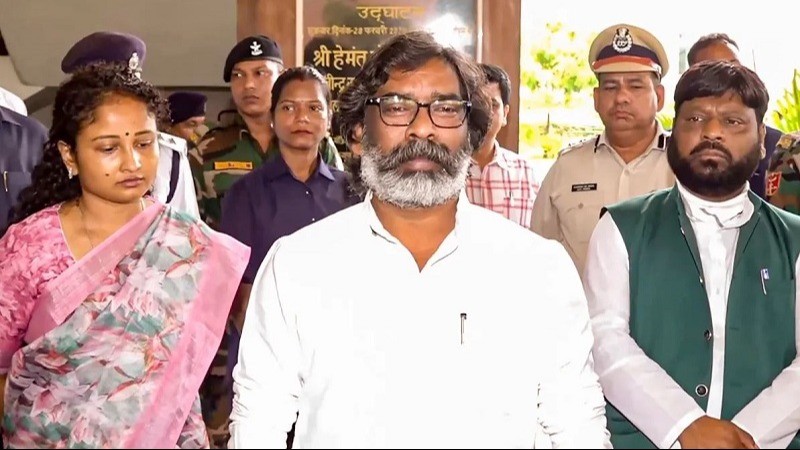
Jharkhand is grappling with two pressing issues: rising extremism and the unchecked influx of illegal Bangladeshi infiltrators. Under the leadership of Chief Minister Hemant Soren, the state faces growing concerns over its ability to manage these intertwined challenges effectively.
Suspected Al-Qaeda Presence in Jharkhand
A recent joint operation by the Delhi Police, Jharkhand ATS, and other central agencies led to the dismantling of a significant Al-Qaeda module in Jharkhand. This operation uncovered a plot to establish Khilafat in India and resulted in the arrest of 12 individuals, including a doctor and a madrasa teacher. Dr. Ishtiaq Ahmed, a medical professional from Jharkhand, is alleged to be the mastermind, with connections extending internationally. Dr. Ahmed reportedly recruited local youths through Mufti Rahmatullah Majhiri, a madrasa teacher in Chanho, Ranchi.
The arrests reveal troubling aspects: educated professionals like Dr. Ahmed were involved, and many detainees came from economically disadvantaged backgrounds, performing low-wage jobs. This suggests that extremist groups are targeting various social strata to spread their ideology.
Illegal Bangladeshi Infiltration
Parallel to the rise of extremism is the issue of illegal Bangladeshi migration, particularly acute in the Santhal Pargana region, including Pakur. The 2011 Census recorded a 28% population growth in Pakur. However, recent voter verification revealed a startling 65% growth rate in Muslim-majority areas, hinting at significant illegal migration influencing the region's demographic and electoral dynamics.
The verification process, conducted by the Pakur district administration, has been criticized for its superficiality. The process, completed in just three days, involved only a basic match of voter cards with Aadhaar without a detailed document review. This approach has been criticized for not addressing issues like the fabrication of documents, including Aadhaar cards and birth certificates, which have been reported in Santhal.
Critics accuse the Hemant Soren-led government of being lenient towards illegal Bangladeshi migrants, suggesting that the JMM-Congress coalition may be tacitly endorsing this influx for political gain. By potentially increasing a voter base sympathetic to their interests, the government might be ignoring broader implications for national security and communal harmony.
Moreover, the administration's response to verifying voter lists has been inadequate. Only 9 out of 263 polling stations in Pakur-Maheshpur were scrutinized for increased voter numbers, raising concerns about the administration's commitment to electoral integrity. Explanations attributing the rise in voter numbers to natural population growth and awareness campaigns fail to address the specific demographic anomalies observed.
The combined threat of rising extremism and unchecked illegal migration presents a significant challenge for Jharkhand. The state's struggle to effectively tackle these issues could have serious implications for both its internal security and the broader socio-political stability of India. If left unresolved, these challenges could destabilize the region and undermine the rule of law.
More To Read:
Soren Family’s Power Play: Alleged Nepotism and Betrayal in Jharkhand
Jharkhand High Court Orders Immediate Response on Tribal Conversion Claims
Ramdas Soren Sworn in as Jharkhand Cabinet Minister, Replacing Champai Soren